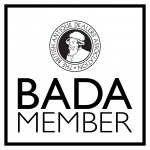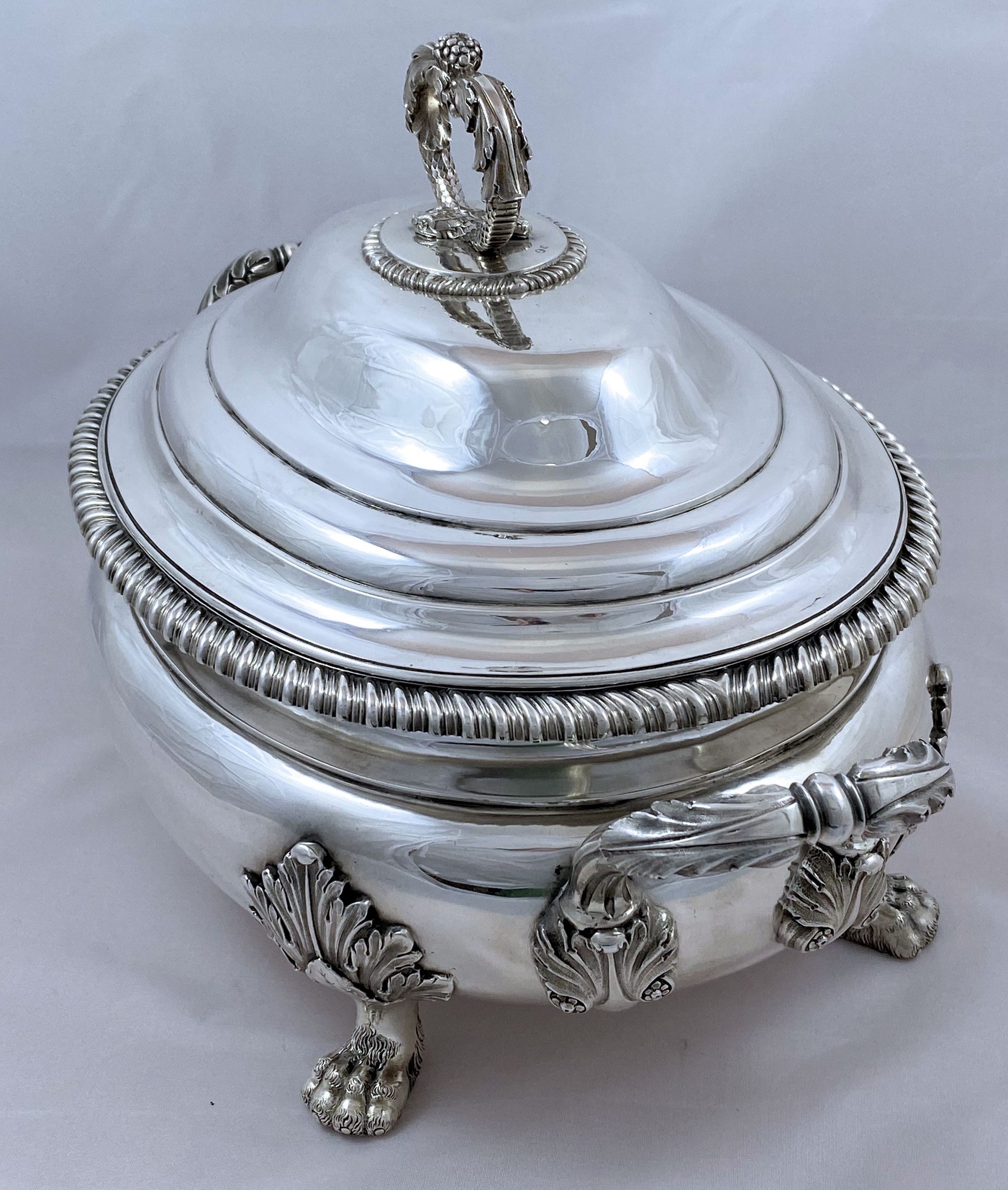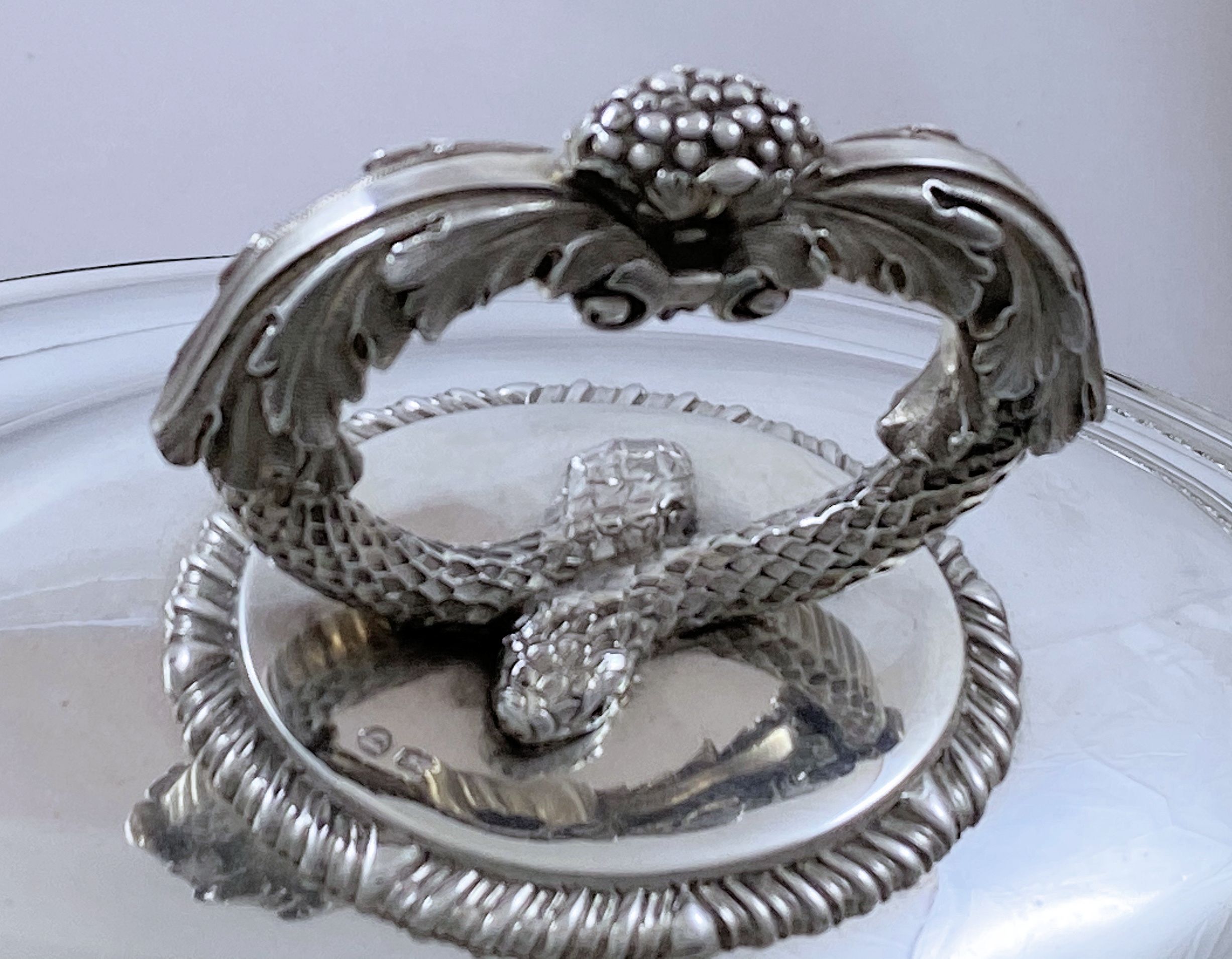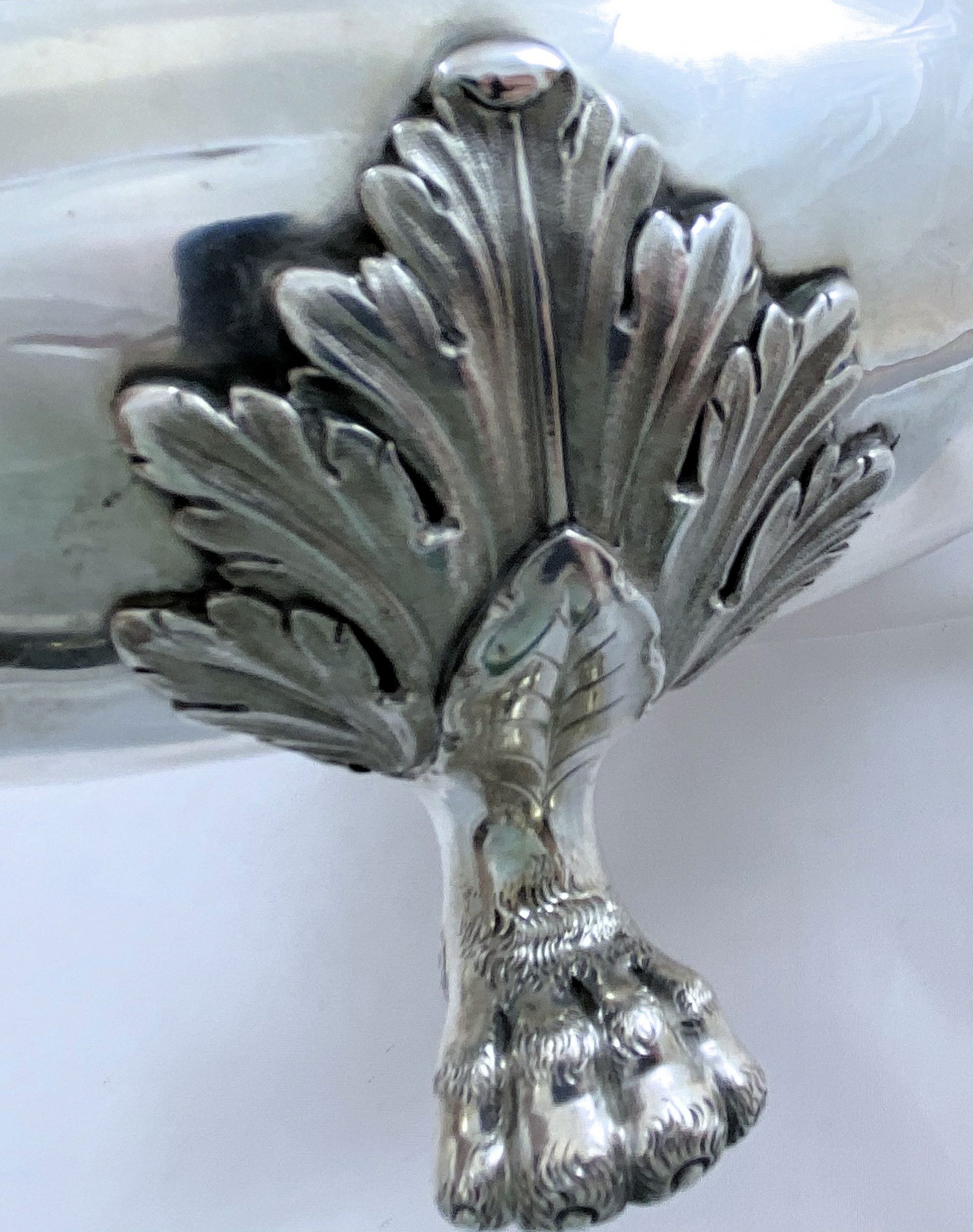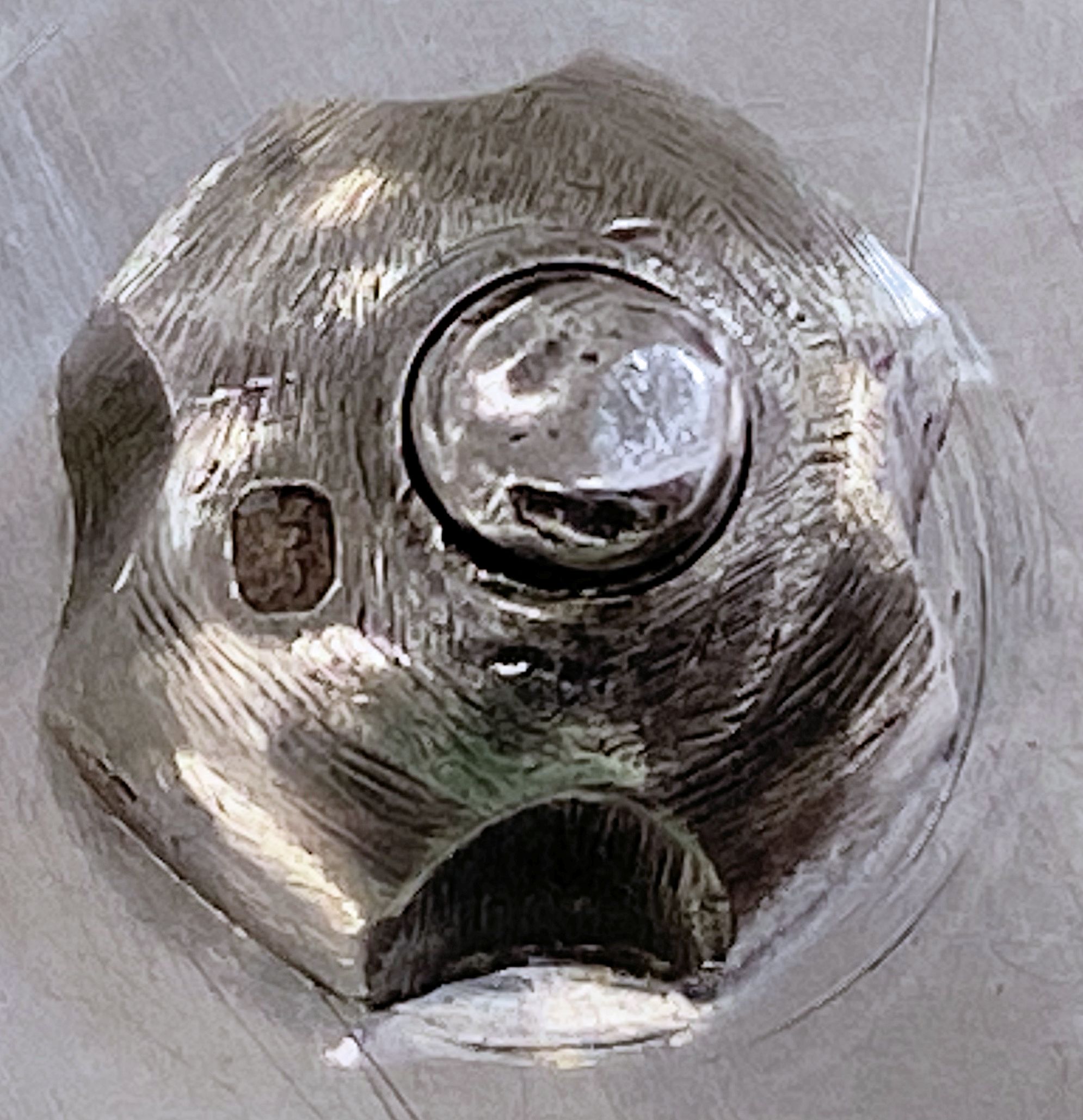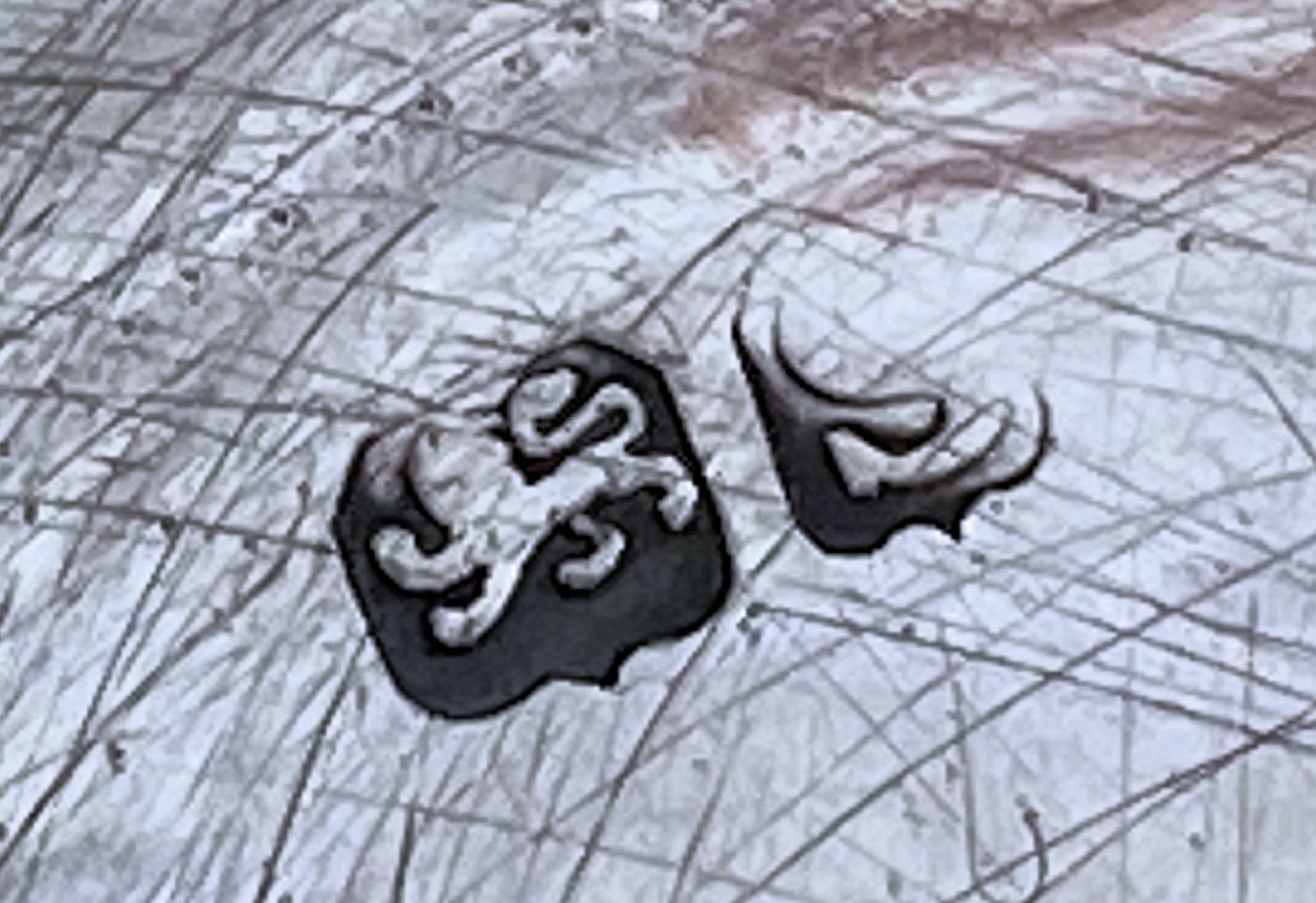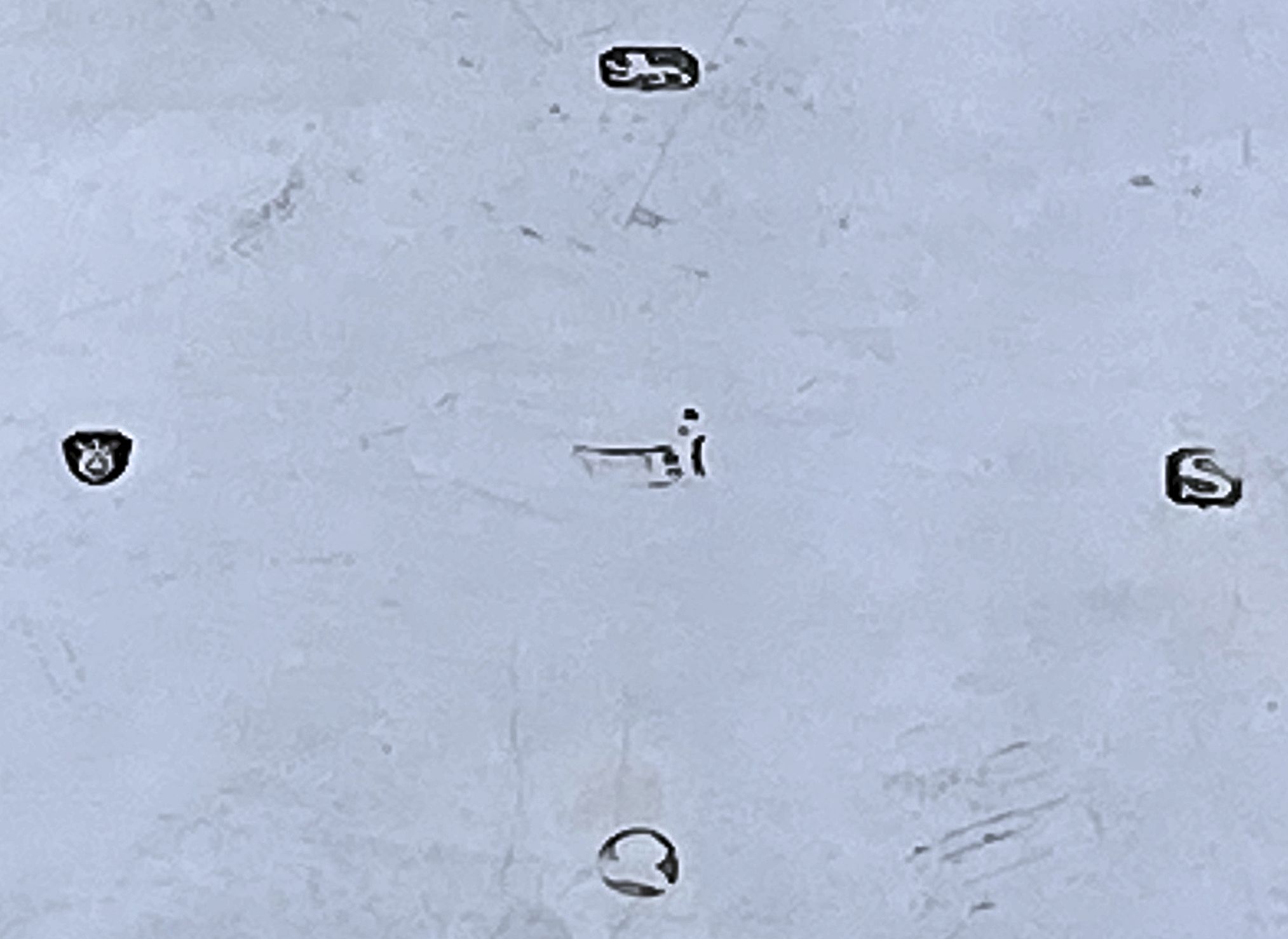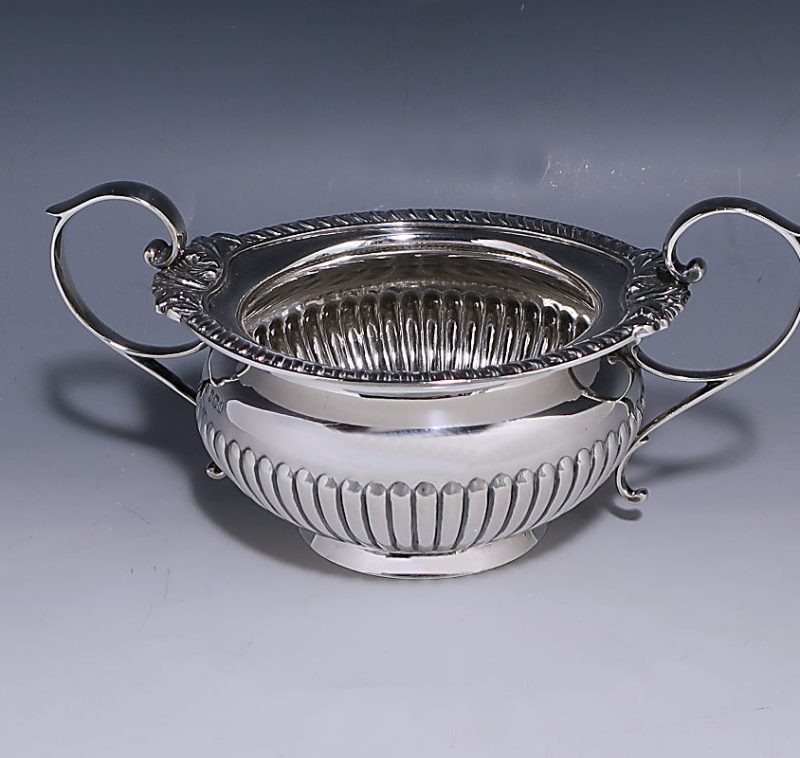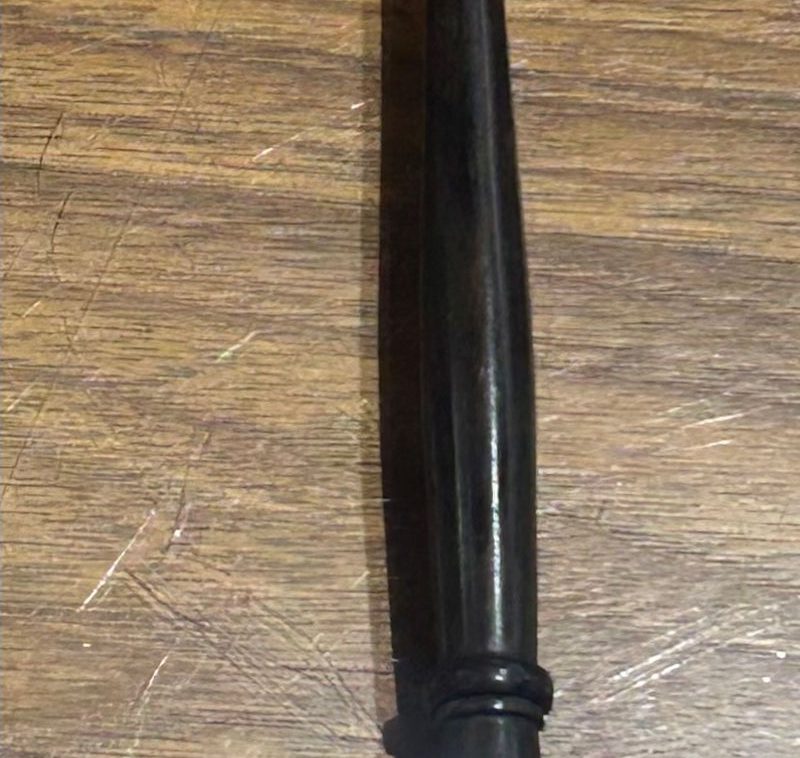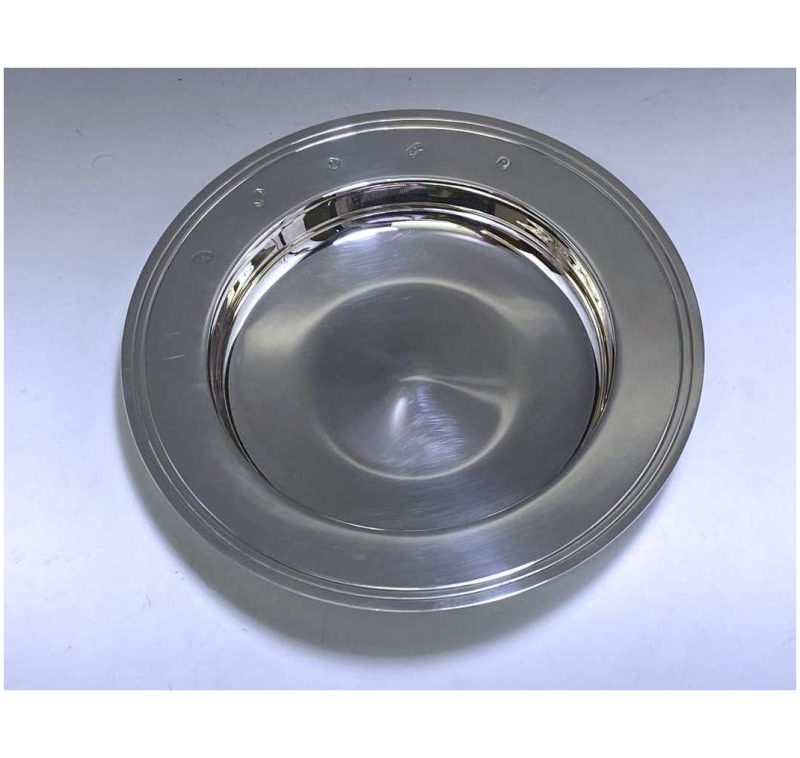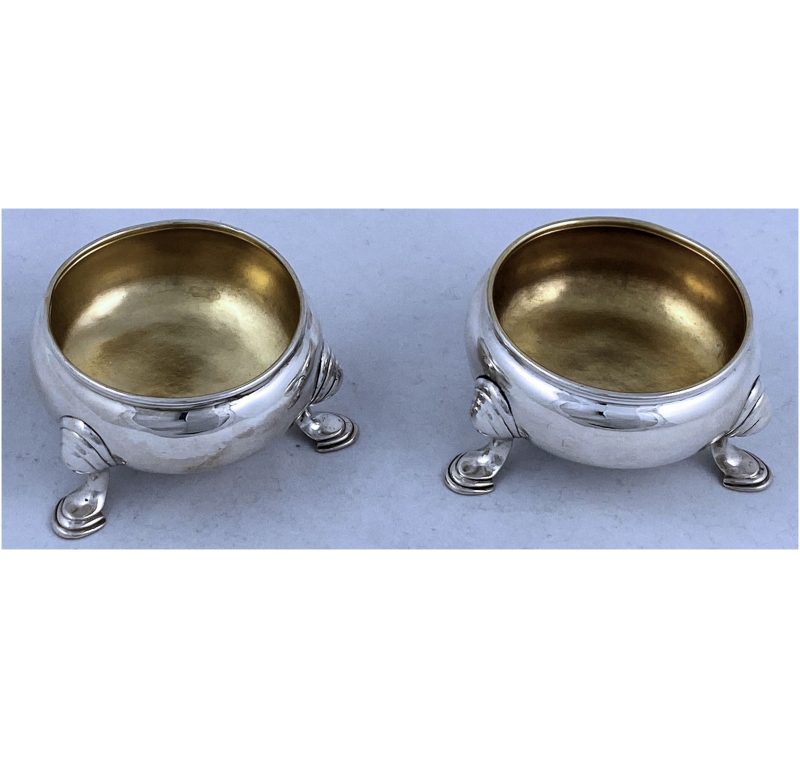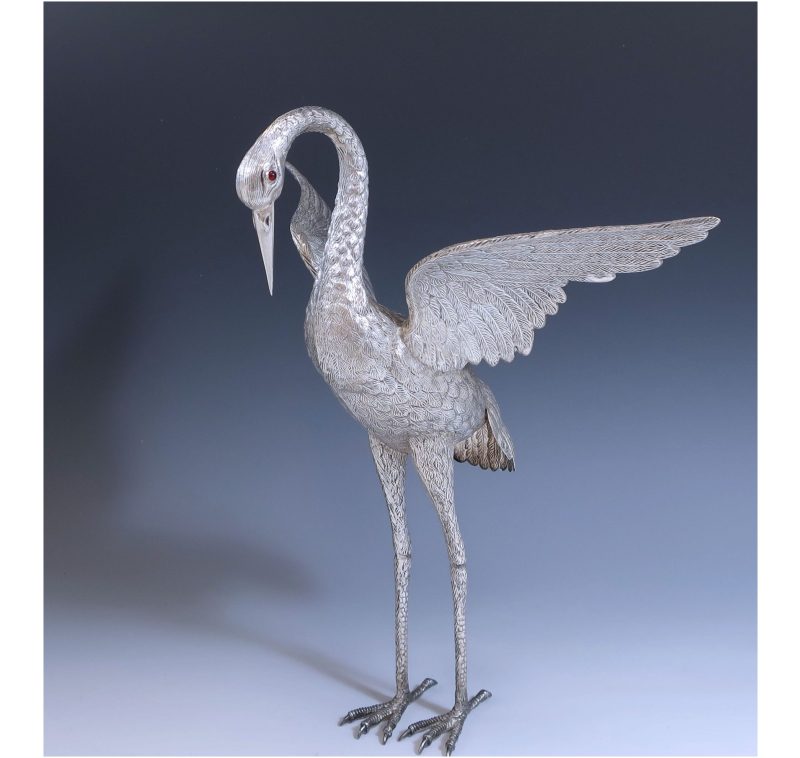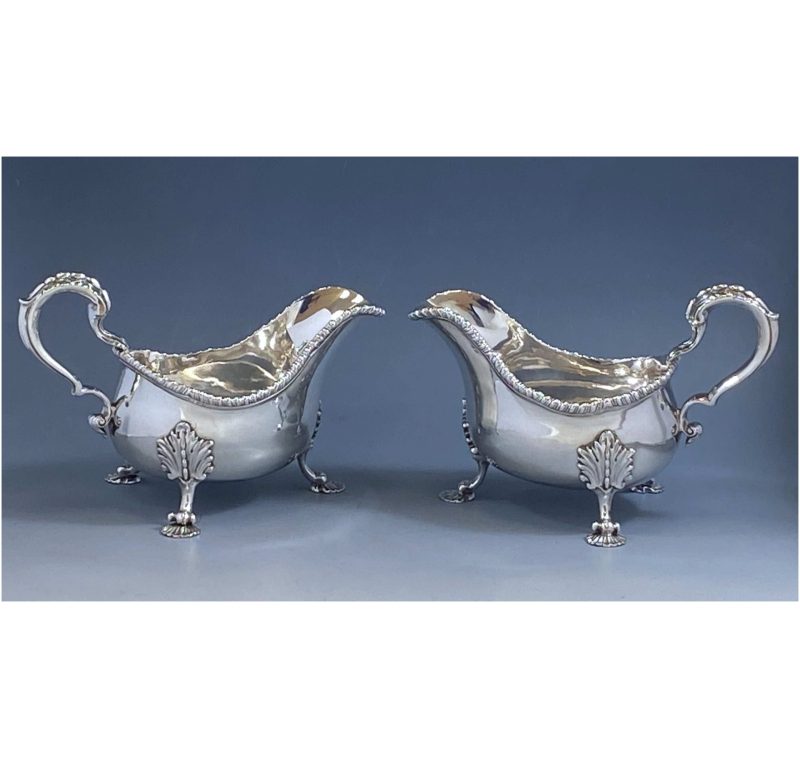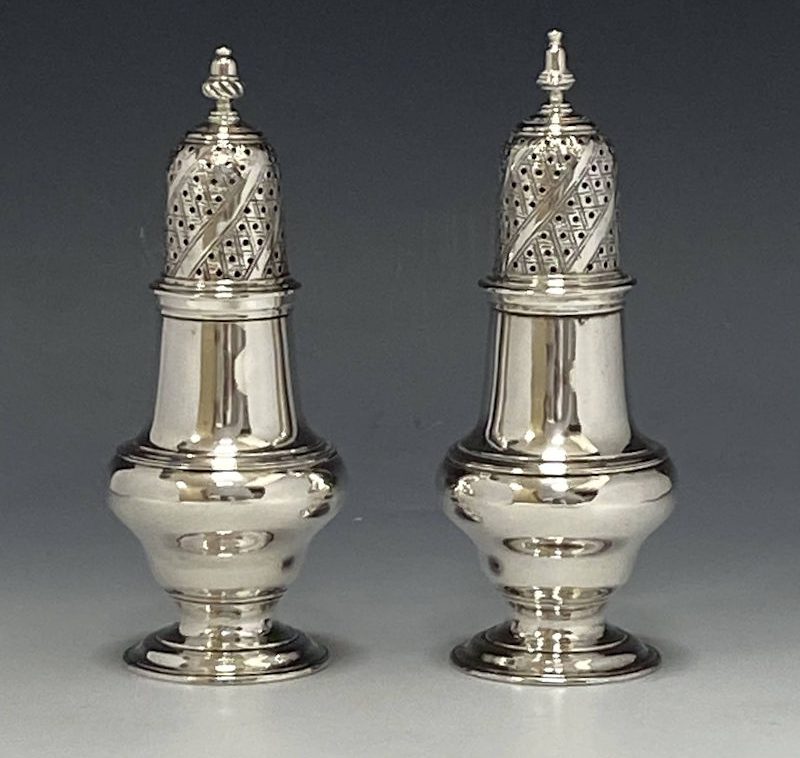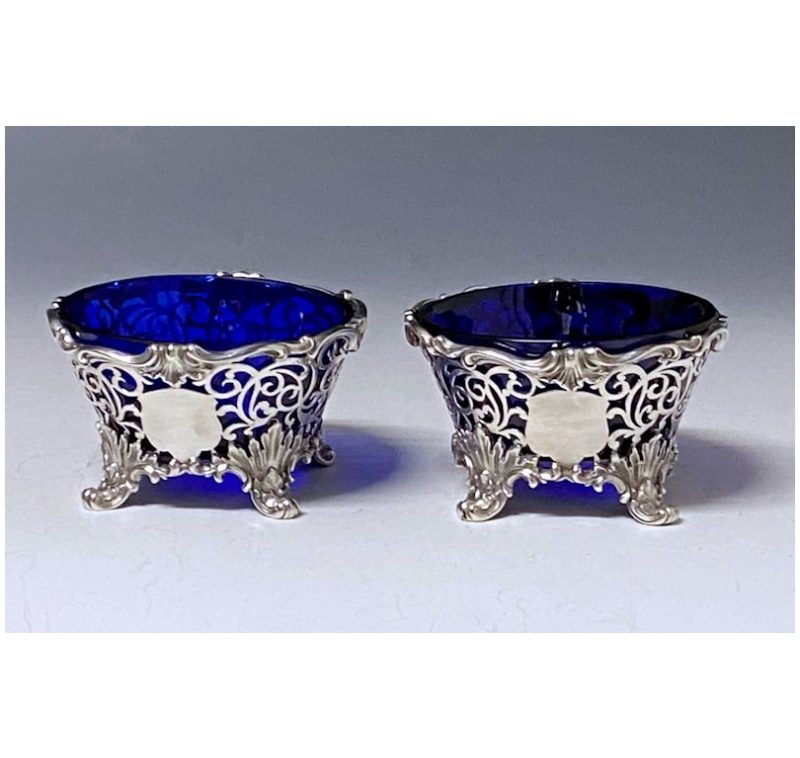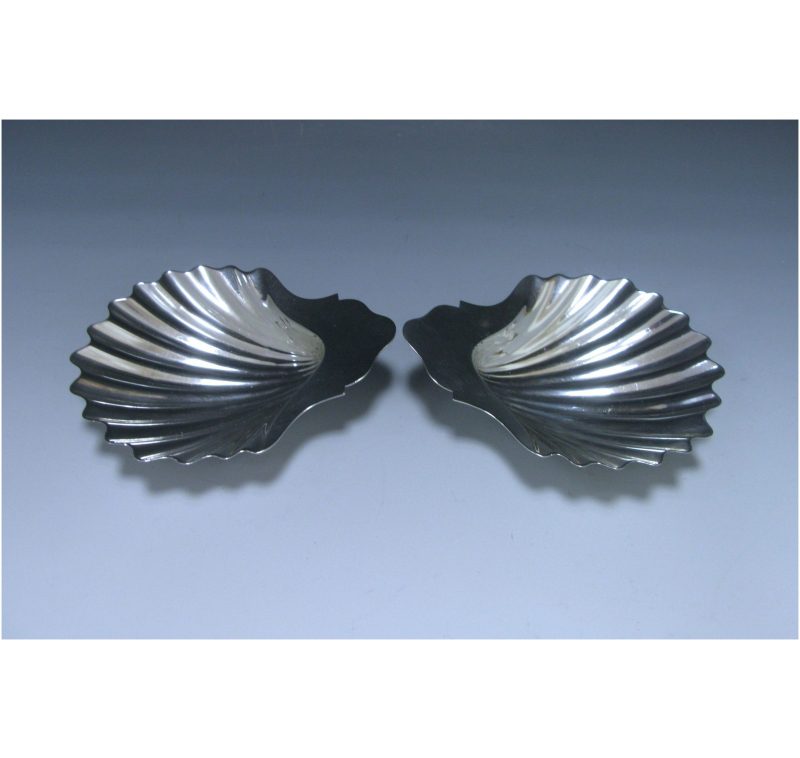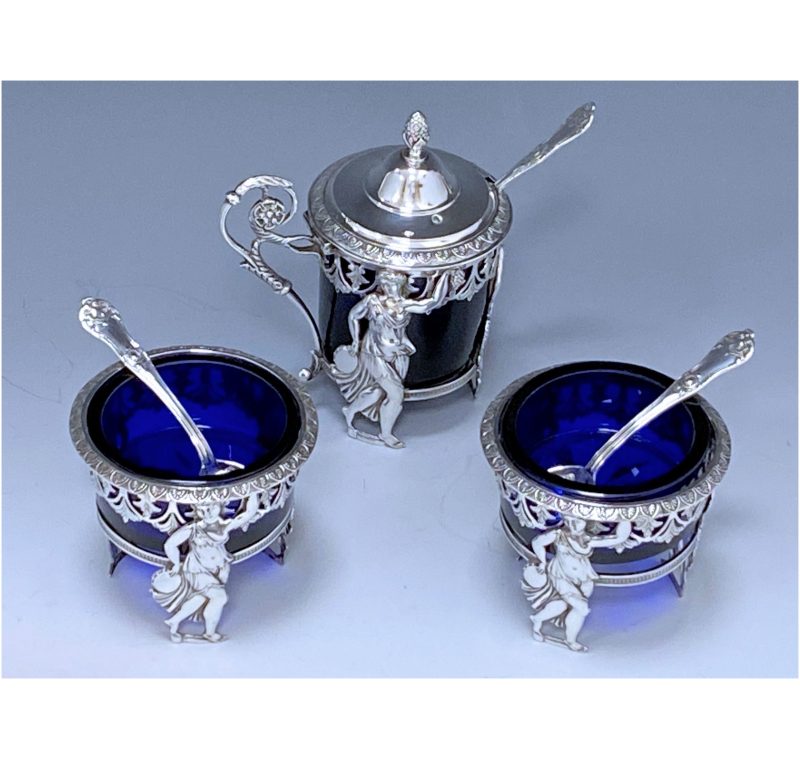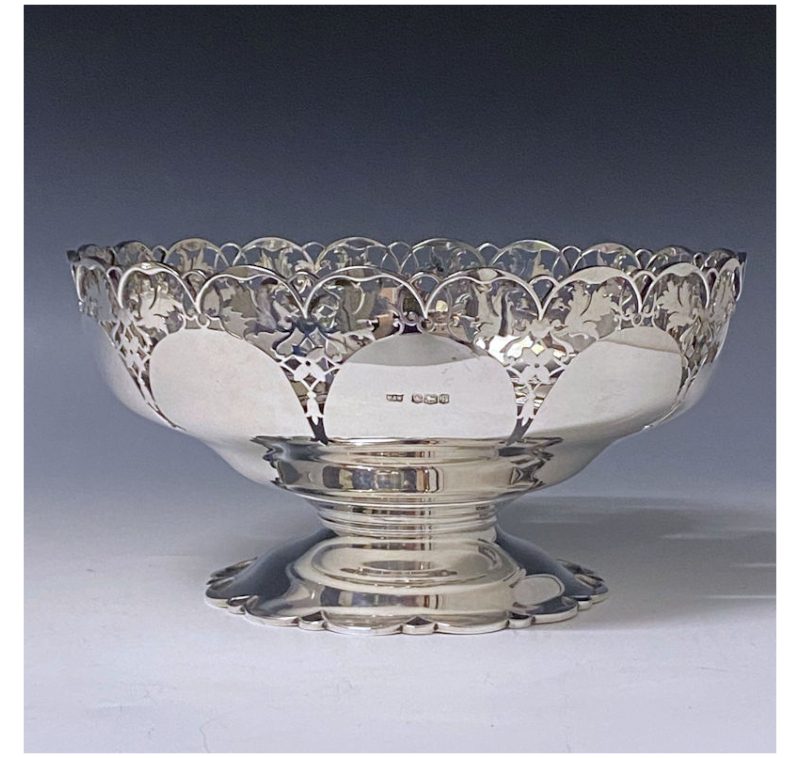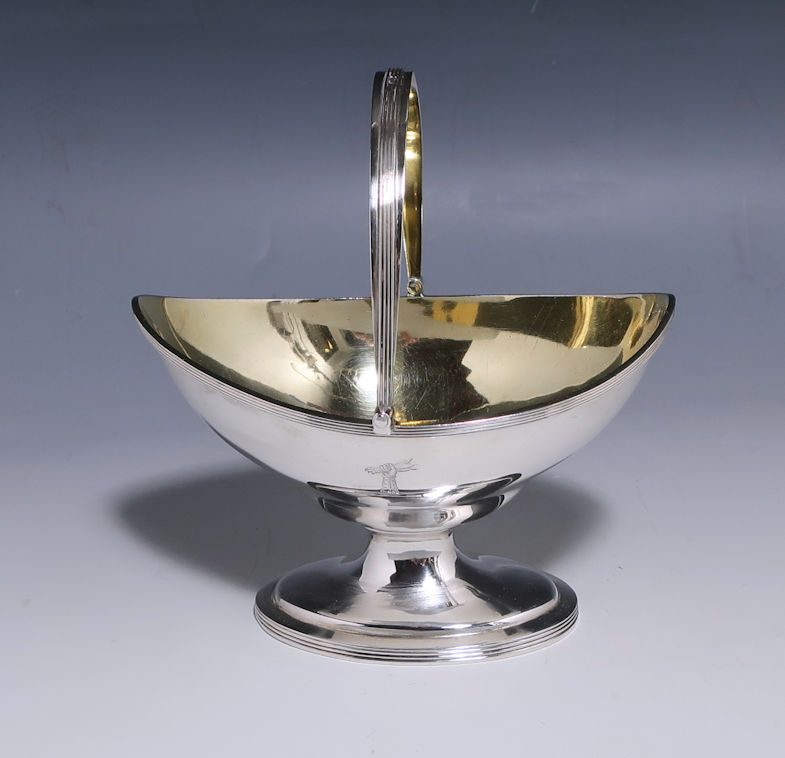Antique Silver George III Soup Tureen made in 1813
£9,800
This lovely Regency period soup tureen has bold gadroon borders and magnificent cast feet and handles.
| Date | 1813 |
| Made By | Samuel Hennell |
| Location | London |
| Stock Number | W144x6 |

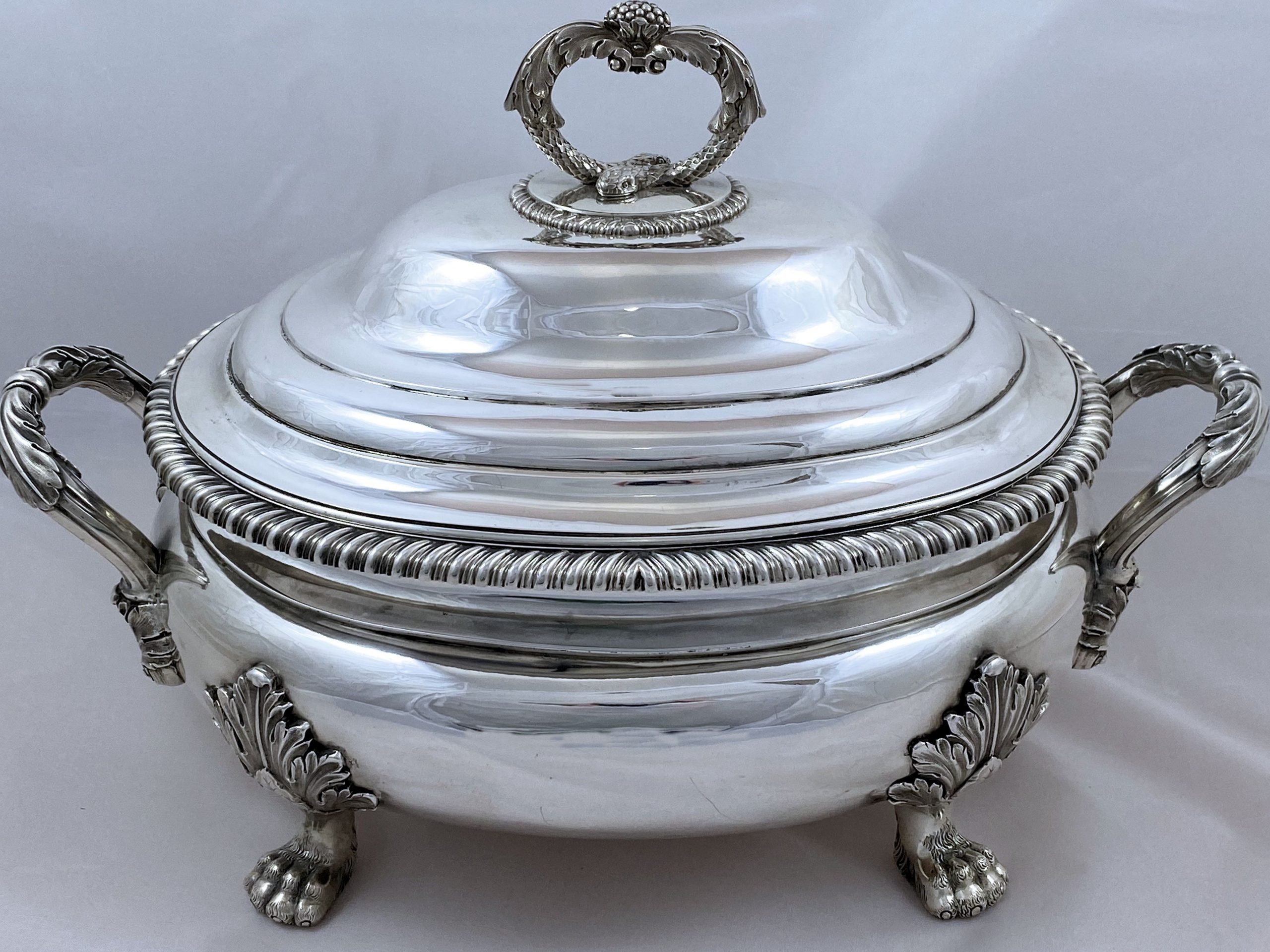
Added to basket
Antique Silver George III Soup Tureen made in 1813



This lovely Regency period soup tureen has bold gadroon borders and magnificent cast feet and handles.
The feet are formed as lion’s paws leading from acanthus leaves and the unusual detachable handle is formed as two snakes issuing from an acanthus arrangement.
The tureen has two fine cast work handles to either end. It is hallmarked underneath, on the lid and both parts of the detachable handle.
The tureen is in superb condition and the cast work detail very sharp.
Dimensions: length (across handles) 39.7 cm, width 23.7 cm; weight 103.75 troy oz.
Tureens were introduced via the French court in the early 18th century as a functional table piece from which a host could serve soup or stew. The word tureen is derived from the French word terrine.
Louis XIV’s taste for hot, rich stews is often credited as a major influence in the use of tureens. As tureens became a symbol of wealth, many were engraved with marital or family armorials.
In the mid 1700s, tureens were provided with matching stands and ladles. By the late 1700s, sauceboats were replaced with smaller sauce tureens, often matching the larger tureens.
The founder of “Hennell dynasty” was David Hennell (I) (1712-1785), apprenticed to Edward Wood in 1728.
David Hennell obtained his freedom (1735) and opened his own business in Gutter Lane in 1736.
In 1763 he was joined in the business in Foster Lane workshop by his son Robert (I) (1741-1811), entering a joint mark in 1763 and 1768. David Hennell retired in in 1773 c. and the family business was continued by Robert Hennell (I).
In 1795 David Hennell (II) (1767-1829) entered in partnership with his father registering a new conjoined mark (Robert Hennell (I) and David Hennell (II).
In 1802 his brother Samuel Hennell (1778-1837) joined to the partnership but soon after David Hennell II retired from the firm and the business was continued by Samuel Hennell and his father Robert Hennell (I).
After the death of his father (1811) Samuel Hennell took over the business forming a brief partnership (1814-1816) with John Terry who had married one of his nieces. In 1816 Samuel Hennell returned to working on his own.
Robert Hennell (II) (born 1763) was the nephew of Robert Hennell (I). He was apprenticed in 1778 to his uncle and to John Houle (engraver). He obtained his freedom in 1785 probably working only at engraving until 1808 when he entered in partnership with Henry Nutting. The partnership lasted until 1809 when Robert Hennell (II) entered a mark by his own (35 Noble Street, Foster Lane).
In 1817 the firm moved to 3 Lancaster Court, Strand and to 14 Northumberland Street, Strand in 1828.
In 1817 c. his son Robert Hennell (III) (1794-1868) joined the firm Robert Hennell & Son and after the retirement of his father (1833) took over the family business. Two of the sons of Robert Hennell (III) were apprenticed to their father: Robert Hennell (IV) (1826-1891), apprenticed in 1842, free 1849, and James Barclay Hennell (1828-1899), apprenticed in 1843, free 1850.
In 1868, at the death of Robert Hennell (III), the firm was taken by his two sons Robert Hennell (IV) and James Barclay Hennell.
Robert Hennell (III) retired in 1877 and James Barclay Hennell continued to manage the business by his own until 1887 when the firm was sold to Holland, Aldwinckle & Slater.
In present days the heritage of Hennell name is carried on by Frazer & Haws and Hennell of Bond Street.
We provide worldwide postage/shipping and everything is fully tracked and insured. Purchases will be sent via Royal Mail Special Delivery, FedEx, Parcel Force, A-Z couriers; other delivery providers may be used in extenuating circumstances. We deliver to the address provided at the time of purchase but not to PO addresses, as a signature is required upon delivery.
Some countries levy import duties and local taxes. Payment of these is the purchaser’s responsibility and beyond the control of William Walter Antiques Ltd. When the container has reached the destination country, a customs representative will contact you for payment prior to delivery.
Import restrictions are applicable to some destinations, especially the import of products containing materials such as ivory and tortoiseshell. We cannot accept orders requiring shipment to any countries which implement such controls.
All items are checked and photographed prior to packaging, and we aim to dispatch 1-3 days after receiving cleared payment.
Delivery Charges:
For the UK £15.00
For Europe £30.00
For the rest of World £50.00
The charges are subject to change
At the heart of William Walter Antiques is our dedication to providing our customers with beautiful silver of supreme quality, which celebrates all that is precious about sterling silver. Customer service also being paramount, our long-standing, devoted staff team go above and beyond the call of duty for all our clients. We believe it is this combination of passion and commitment that has kept our customers with us for many years.
We accept credit/debit cards or bank transfer. Please submit an enquiry below or contact us on:
Phone Number
+44 (0) 207 242 3248
Email
info@williamwalter.co.uk
Visit us at the London Silver Vaults
William Walter Antiques,
London Silver Vaults,
53-64 Chancery Lane,
London, WC2A 1QS
Opening Hours
Mon – Fri: 10:00 – 17:00
Sat: 09:00 – 12.30

